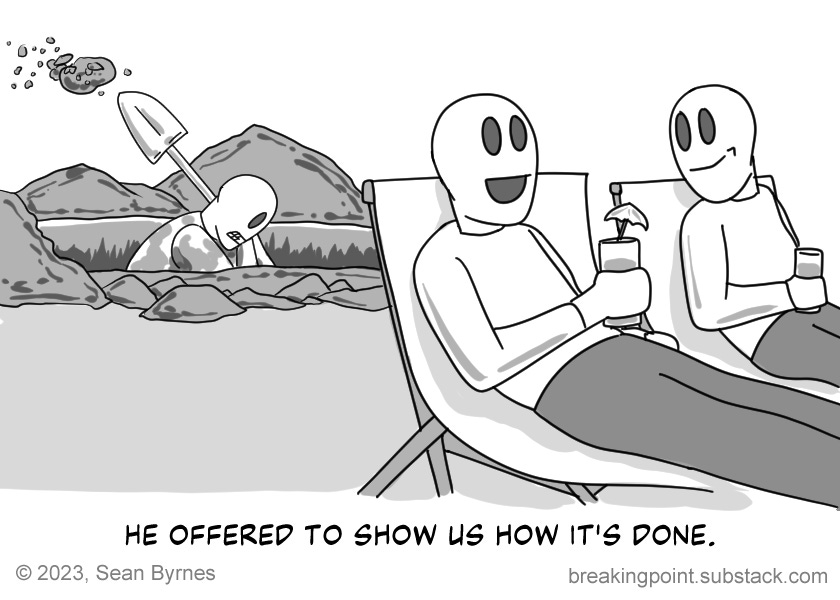The Three Levels of Leadership
How do you define your job as a leader? Here’s one way.
One common mistake that new leaders make is to assume there is one, ideal style of leadership that they should aspire to follow. We all have idols or mentors, and the desire to lead like them is very strong.
However, there are countless different styles of leadership, and the best style for you might be different than anyone else. The best leaders, those same idols or mentors, styled their leadership in ways that followed their strengths. In fact, many leaders simply focus on their own strengths and their leadership style follows from them.
Your style of leadership matters less than your ability to do the job and do it well. There are many different styles in use by great leaders, but what makes a leader great? I break down the job of a leader into three levels:
Level 1. Management
You set goals and hold your team accountable for hitting them.
Level 2. Coaching
You help the members of your team get better at their existing roles.
Level 3. Training
You teach members of your team how to perform a new role.
Management is a requirement of the job. If you are not setting goals and ensuring your team hits those goals, who will? The job of a leader is to make sure the team is pointed in the right direction and moving at the right speed. There are many great leaders who stop there, and if their team cannot do their jobs they are fired and someone else hired in their place.
In addition to Management you can choose to do Coaching, but it’s not a requirement. Coaching is popular since it’s hard to find the perfect people for every role who have done it before and have all the skills to succeed. Even if you could find such a person, they have not done the job on your team, with your leadership style, and will need to adjust. Many of us choose to coach our teams to help develop in their careers as well, but remember that it’s not required. Coaching is a voluntary task you can take on as a leader, and how much of it you do is entirely up to you.
If you are doing Management and Coaching, you might also choose to do Training. This is most common in jobs where you need to hire a lot of junior employees such as in retail. In these areas you don’t have the option to only hire experienced people, so you need to teach them to do the job, then coach them to improve all while setting goals and holding them accountable. It’s a very hard leadership stack to do all three, but some leaders will choose to do this even though it’s not required. Training people in new roles is necessary since everyone needs to do a job for the first time, but not all leaders will accept it as part of their job.
This model of leadership is important because you need to make a conscious decision about which levels you will operate on as a leader. You need to set goals, but do you have time to coach? If so, how many people? How much coaching will you provide before it’s really training? Do you have time for training?
The answer might be related to your leadership style. If you like to build strong relationships with your team, coaching might come naturally. If you prefer to be the strict, hands-off leader who sets goals and leaves it to your team then coaching might not work well.
Personally, I have found it hard to operate on multiple levels at the same time. It’s hard to set a goal for someone, hold them accountable and coach them all at the same time. If they miss their goal, is that their responsibility? Or did you not coach them well enough? I find it hard to tell the difference. I will coach people on my team, but typically not direct reports who I am busy holding accountable.
Just like your leadership style might change over time, you might choose to operate at different leadership levels over time. It might make sense to train and/or coach your team when you are small because the experienced people you need won’t come work for you. When your team is large and you can hire experienced people, you likely don’t need to coach or train any longer.
The most important part is to make a conscious decision about what leadership means to you, and focus on being great at that job. Other people might use different levels to define their job as a leader, but they are not you. Be great at the job you want to have, and let it follow your leadership style.
There is a great leader inside everyone, you just need to let it define how you lead.
For more on leadership, see:
Leading by Example Doesn’t Scale, so adjust accordingly
Most leaders don’t have a Corporate Ethics framework, do you?
As a leader, how you Communicate Change is critical


